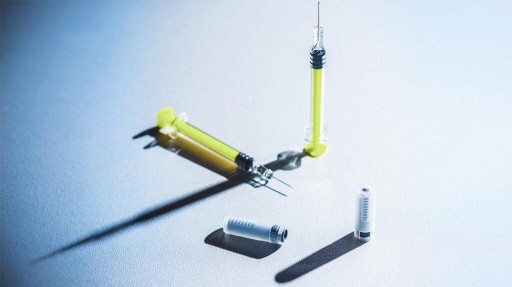
- More than 1 billion people globally have at least one migraine headache each year.
- Medications are used to treat symptoms and lessen migraine episodes, but all therapies do not work for everyone.
- Researchers from the University of Bergen in Norway have identified which therapies they feel tend to work best in preventing migraine.
More than
There is currently no cure for migraine.
However, not all therapies work for every person, so medications prescribed for people with migraine are
Previous research has shown that taking too much medicine can
To help shed some more light on which migraine medications work the best, researchers from the University of Bergen in Norway recently published a study on which therapies they feel tend to work best in preventing migraine.
The
Comparing migraine medications
She noted that these medicines are rarely compared against each other.
“Usually, such medicines are compared against placebo drugs,” Bjørk told Medical News Today. “Therefore, it is hard to know which one works best in real life. Also, migraine preventive drugs are usually tested on a selected group of people not necessarily representative of the population that ends up using the drug.”
Beta-blockers are a preventive first choice for migraine
For this study, researchers used national register data from 2010 to 2020 that included more than 100,000 people with migraine.
Scientists examined which acute migraine medications were taken before and after starting preventive treatment. They also measured how long the people with migraine used the different preventive treatments.
After analyzing the results, researchers reported that beta-blockers were normally used as the first choice to prevent migraine headaches.
“Beta-blockers inhibit the adrenergic responses in the drugs such as the effects of adrenaline,” Bjørk explained. “They have many effects, including lowering of blood pressure and heart rate, and are therefore used for hypertension, heart arrhythmia, and heart failure.”
“By serendipity, it was also discovered that they prevent episodic migraine in persons who do not have these disorders,” she added. “This has been documented in many
Three medications with better preventive effects
As Bjørk and her team dug further into the research results, they found that three other medications had better preventive effects than beta-blockers — CGRP inhibitors, amitriptyline, and
“CGRP antibodies were developed specifically to treat migraine by inhibiting CGRP, which is a signal transmitter involved in the generation of migraine headache,” Bjørk explained. “One of its effects is that it inhibits the dilation of blood vessels.”
“Amitriptyline was previously used as an antidepressant drug but is currently used more to treat different types of neuropathic pain and migraine and tension-type headache,” she added. “Simvastatin lowers cholesterol and the patients in our study probably used it for this purpose rather than for migraine. However, currently some believe that simvastatin may reduce inflammation and stabilize blood vessels, possibly that is why it might work to prevent migraine.”
Surprising results from migraine drugs study
Bjørk commented the findings were surprising, especially in regard to simvastatin being consistently associated with a decrease in migraine.
“We measured migraine reduction by looking at whether people stating simvastatin or the other migraine preventive drugs filled less prescriptions for
“We were less surprised by the finding that CGRP antibodies and amitriptyline were associated with a reduction in migraine as these are well-established migraine preventives,” Bjørk added.
Additionally, the researchers pointed out in their study that some established and cheaper medicines available in Norway can have a similar migraine prevention effect as the more expensive ones.
“(This) is significant because most of the people (who) suffer from migraine in the world will never be able to buy expensive migraine preventive drugs,” Bjørk said. “Because of the large number of people with migraine, treatments that put less strain on the national health budgets are also important.”
Effective, less expensive migraine medications needed
Medical News Today also spoke with Dr. Monte Pellmar, the director of the Headache and Migraine Center in the Hackensack Meridian Neuroscience Institute at Jersey Shore University Medical Center in New Jersey, about this study.
Pellmar said it is important to note that this study was completed in Norway with their protocol for treating migraine and their cost of medicine, which is different than the United States.
“In the U.S., in order for health insurance providers to approve the prescription of newer medications, such as the mentioned CGRP antibodies, two or three of the oral preventatives, including antidepressants (amitriptyline), beta-blockers (Inderal), and seizure medications (topiramate) need to be first prescribed and deemed ineffective,” he explained. “As a result, recommendations from Norway cannot be translated as advice for treating migraine in the U.S.”
“Given the significant prevalence of people with migraine around the world, I do believe that finding effective, less expensive medication is important, and would welcome similar studies in the United States and other countries with comparable healthcare systems,” Pellmar added. “In the area of treatments preventing migraine, in my opinion, the most effective agent with the least side effects for chronic migraine is Botox, followed by the CGRP antibodies and the newer [class of drugs] gepants Qulipta and Nurtec.”





